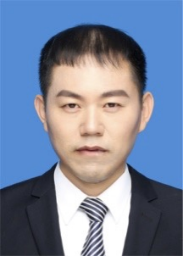Prof. Chen Gong
IEEE Senior Member
Nanjing University of Science and Technology, China

BIO: Chen Gong is a full professor in the School of Computer Science and Engineering, Nanjing University of Science and Technology. He received his B.E. degree from East China University of Science and Technology (ECUST) in 2010, and dual doctoral degree from Shanghai Jiao Tong University (SJTU) and University of Technology Sydney (UTS) in 2016 and 2017, respectively. He has published more than 100 technical papers at prominent journals and conferences such as IEEE T-PAMI, IEEE T-NNLS, IEEE T-IP, IEEE T-CYB, ICML, NeurIPS, CVPR, AAAI, IJCAI, ICDM, etc, and also holds 7 granted inventory patents. He serves as the associate editor for IEEE T-CSVT and NePL, reviewer for more than 30 international journals such as AIJ, JMLR, IEEE T-PAMI, IJCV, IEEE T-NNLS, IEEE T-IP,IEEE T-KDE, and also the SPC/PC member of several top-tier conferences such as ICML, NeurIPS, ICLR, CVPR, ICCV, ECCV, AAAI, IJCAI, ICDM, etc. He received the "Wu Wen-Jun AI Excellent Youth Scholar Award", "Young Elite Scientists Sponsorship Program" of China Association for Science and Technology, The Science Fund for Distinguished Young Scholars of Jiangsu Province, "Hong Kong Scholar", the second prize of Shanghai Natural Science Award, and "Excellent Doctorial Dissertation award" by Shanghai Jiao Tong University (SJTU) and Chinese Association for Artificial Intelligence (CAAI). He was also selected to the Global Top Chinese Young Scholars in AI released by Baidu, and World's top 2% scientists list by Stanford University.
Assoc. Prof. Yunzhi Jiang
IEEE Member
Guangdong Polytechnic Normal University, China

BIO: Prof. YunzhiJiang, Ph.D., Associate Professor, graduated with a Ph.D. in Computer Science from South China University of Technology. I have studied abroad on a public scholarship at the University of Technology Sydney in Australia and the University of Alberta in Canada, and have been invited to visit Tsinghua University in Taiwan as a senior visiting scholar. Research directions include computational intelligence, image segmentation, data mining, neural networks, manifold learning, etc. IEEE Member, Communication Member of the Professional Committee of the Chinese Computer Society, and Member of the Chinese Society of Industrial and Applied Mathematics. Hosted one project of the National Natural Science Foundation (Youth) and one project of the Guangdong Provincial Department of Education (Conclusion), and participated in multiple research projects of the National Natural Science Foundation and the Guangdong and Jiangxi Provincial Natural Science Foundation. I have published more than 30 papers in international high-quality academic journals and conferences such as the Journal of Computer Science, Journal of Computer Aided Design and Graphics, SCI Zone 1 and SCI Zone 2.
Prof. Yulin Wang
WuHan University, China

BIO: Yulin Wang is a full professor in the School of Computer Science, Wuhan University, China. His research interests include image and video processing, digital rights management, information security, intelligent system, e-commerce, IoT, code clone and so on.
He got his PhD degree from University of London, UK. He got his master and bachelor degree from Huazhong University of Science and Technology(HUST)and Xi-Dian University respectively, both in China.
Before joining the Wuhan University, he has worked in Hi-tech IT industry, including HUAWEI© and national research institute, for more than ten years. He has involved more than 15 national and international research projects. In recently 10 years, Prof. Wang has published 1 book, and 50+ journal and conference papers, including in IEEE TIP. He holds 10 authorized patents.
Prof. Wang served as EiC of 2 international journals and reviewer of top IEEE and ACM journals. He also served as reviewer of Innovative talents projects and national research funds, including National High Technology Research and Development Program of China. Prof. Wang was the external PhD advisor of Dublin City University, Ireland during 2008-2010.
In recently 10 years, Prof. Wang served as chairman of more than 10 international conferences, and keynote speakers in more than 20 international conferences. Besides UK, he visited US, France,Italy, Portugal,Croatia, Australia, Germany, korea, Ireland,Singapore, Malaysia, Japan, and Hong Kong. In addition, Prof. Wang has been appointed as the deputy director of Hubei provincial science and technology commission (CAPD) since 2014.
The speech title: Lightweight Image Authentication and Tamper Localization
Abstract: Image authentication can be used in many fields, including e-government, e-commerce, national security, news pictures, court evidence, medical image, engineering design, and so on. Since some content-preserving manipulations, such as JPEG compression, contrast enhancement, and brightness adjustment, are often acceptable—or even desired—in practical application, an authentication method needs to be able to distinguish them from malicious tampering, such as removal, addition, and modification of objects. Therefore, the traditional hash-based authentication is not suitable for the application. As for the semi-fragile watermarking technique, it meets the requirements of the above application at the expense of severely damaging image fidelity. In this talk, we propose a hybrid authentication technique based on what we call fragile hash value. The hash value is derived from the relative difference between each pair of the selected DCT coefficient in a central block and its counterpart which is estimated by the DC values of the center block and its adjacent blocks. In order to achieve blind authentication, we hide the hash value in the specified boundary of the image. The technique can blindly detect and localize malicious tampering, while maintaining reasonable tolerance to conventional content-preserving manipulations. Finally, we point out the direction using deep leaning technique for image authentication.
Prof. Qiang Chen
IEEE Member
Nanjing University of Science and Technology,China

BIO: Qiang Chen received his doctoral degree from Nanjing University of Science and Technology and completed his postdoctoral research at Stanford University. He is a professor and doctoral supervisor at the School of Computer Science and Engineering/Artificial Intelligence Institute at Nanjing University of Science and Technology. He is a Senior Member of CCF and an editorial board member of "Frontiers in Medicine" and "Journal of Image and Graphics". He has served as an excellent reviewer for several journals such as Transactions on Medical Imaging and Acta Automatica. His research work mainly focuses on image processing, computer vision, and pattern recognition. He has published over a hundred papers in journals and conferences including MedIA, TMI, Ophthalmology, and MICCAI. and his publications have received over 3500 citations on Google Scholar. He has also been granted more than twenty national patents. Qiang Chen has been honored with the Second Prize of Jiangsu Science and Technology Award (ranked 2nd), the title of "333 Project" Talents in Jiangsu Province, the title of Excellent Young Backbone Teacher in Jiangsu Province Qinglan Project, and the Jiangsu Province Six Talent Peaks Award.
The speech title: Joint analysis of brain and eye images for ASD
Abstract: Autism spectrum disorder (ASD) is a neurodevelopmental disorder. At present, the pathogenesis of ASD is still unclear. Early recognition and intervention can improve ASD. We try to explore biomarkers for ASD diagnosis from the perspective of joint analysis of brain and eye images. This report first introduces the physiological relationship between the brain and the eye and the significance of analyzing brain diseases from the eye. Then, image processing techniques are used to extract the structure and functional parameters of the retinal tissue in the eye from optical coherence tomography images, and significance and correlation analysis are conducted. Based on eye images, a preliminary ASD screening model is constructed. Finally, the abnormal areas of ASD brain function are analyzed from brain magnetic resonance images to further verify the rationality of eye biomarkers.




